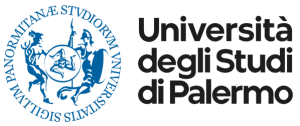Advanced Statistics for Business C.I.
LM-31 – 1st Year
By the end of the course, students will be proficient in the basic tools of multivariate statistics, the R software, and quantitative methods for analyzing large, complex databases. The course covers a comprehensive range of topics: analysis of non-metric data using Generalized Linear Models, and the formulation of both supervised models, like Regression, and unsupervised models, including Principal Component Analysis, Factorial Analysis, Canonical Correlation Analysis, and Cluster Analysis. This curriculum is designed to equip students with the necessary skills to handle complex data analysis in diverse management contexts.
Business Process Management
LM-31 – 1st Year
The student, at the end of the course, will have acquired the knowledge and learnt the methodologies for mapping, analysing and redesigning business processes by guaranteeing the effectiveness and efficiency of business projects to meet new market demands, regulatory requirements or compliance with new regulations, and requirements related to acquisitions or mergers with other companies.
Corporate Finance
LM-31 – 1st Year
At the end of the course, the students should have the following skills: Understand and describe the main individual investment choices; understand and describe the main firm financing decisions; understand and know how to use fixed income securities; understand and know how to use equity securities; understand and know how to use derivative securities; understand and know how to use the basic techniques for portfolio management: understand start-up financial decisions.
Innovation Management
LM-31 – 1st Year
By the end of the course, the student will have acquired knowledge and methodologies to deal in an original way with the main topics related to: a) the management of technological innovation in companies; b) innovation policies in the contexts in which they operate. The student, after becoming familiar with the basic concepts related to networked and science-based innovation, the student will be able to assess the relationships between a company's innovative capacity and competitiveness in the markets, understand the issues of intellectual property protection, and analyse the link between innovation, entrepreneurship and economic growth. economic growth.
Marketing
LM-31 – 1st Year
The student will acquire the knowledge and the methodologies to face and solve Marketing issues. The student will be able to analyze the market and competition scenarios, to evaluate opportunities, threats, and strengths and weaknesses of firms, to elaborate in a global context both offline and online, Marketing strategies with regard to market segmentation, product/service differentiation, positioning, and to put them into practice through marketing mix variables, namely product, price, distribution and communication decisions.
Project Management
LM-31 – 1st Year
In a context where project management is a relevant operative approach, it is necessary for human resources to own the skills in order to think and manage the project taking into account international standards.
The purpose of the course is to offer basic training related to project management providing the student the knowledge related to the PMBOK
standard and to Prince 2 method. Finally, another objective is to provide the student the ability to use the mathematical models that can help him in decision-making, in the ranking of the projects or alternatives.
The purpose of the course is to offer basic training related to project management providing the student the knowledge related to the PMBOK
standard and to Prince 2 method. Finally, another objective is to provide the student the ability to use the mathematical models that can help him in decision-making, in the ranking of the projects or alternatives.
Supply Chain Management
LM-31 – 1st Year
By the end of the course, the student will have acquired knowledge and practical methodologies for analyzing and planning supply chains, as well as analyzing and optimizing their performance.
The student will be able to work as a consultant, analyst, and manager for the management of logistics chains.
The student will be able to work as a consultant, analyst, and manager for the management of logistics chains.
